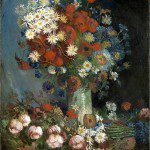 Bart Ehrman, in his How Jesus Became God, spends two chapters on the subject of the resurrection of Jesus because he believes that the early disciples’ belief that Jesus appeared to them was the major impetus for recognizing his divinity (chs. 4-5).
Bart Ehrman, in his How Jesus Became God, spends two chapters on the subject of the resurrection of Jesus because he believes that the early disciples’ belief that Jesus appeared to them was the major impetus for recognizing his divinity (chs. 4-5).
To be quite honest, while I thought his first few chapters were not so bad, I think his argumentation takes several steps backwards in these chapters. I felt that, in these chapters in particular, Ehrman took too many liberties in (1) defining what historians can and cannot do and (2) using guesswork to move his argument forward. We will get to that in a moment.
In about 80 pages, Ehrman says a lot, but I think here are the two key take-away points:
(1) It is historically unlikely, according to Ehrman, that Jesus was taken down from the cross and given a proper burial. Most likely, he was picked apart by birds or fed to wild animals. That is because the cruel Romans who used crucifixion to bring ultimate shame to the accused would hardly have politely agreed to requests to offer this “enemy of the state” a dignified burial.
(2) Ehrman doesn’t believe Jesus bodily rose from the dead. His best guess is that the NT and the phenomenon of early Christianity itself probably attests to the early disciples believing Jesus appeared to them (esp Peter and Paul). This may very well have been hallucinations. While Ehrman sometimes comes across as open to letting readers come to their own conclusions about Jesus’ nature, Ehrman clearly states his “historical” view: “[Jesus] was purely human” (204).
I would like to interact with a series of arguments in regards to these points that Ehrman makes in these chapters.
Jesus Was Not Buried
Part of Ehrman’s argumentation in dismissing the burial traditions of Jesus is rarity – Paul does not mention Joseph of Arimathea, he argues (see pp. 152-153). I cannot see why this is that big of a deal – we cannot equate Paul’s letters (which are pastoral documents, not evangelistic ones) with how he shared the gospel (even 1 Thess 1:9-10 does not say it all). Aside from 1 Tim 6:13, Paul doesn’t talk about Pontius Pilate. He simply did not have a reason to share that kind of information in his letters. Paul doesn’t mention Mary or Joseph or Jesus’ siblings. There are lots of things Paul doesn’t talk about.
Besides, Ehrman seems to put a lot of stock in the Christian “tradition” of 1 Cor 15, but doesn’t give much credit to Paul’s own attestation of the burial of Jesus in 1 Cor 15:4. Let alone how important burial image is for his baptismal language (Rom 6:4; Col 2:12). From what I can see, the burial of Jesus was fixed into the Christian tradition from the start.
The Early Christians Needed an Empty Tomb
Ehrman proposes that Jesus was not buried, but the early Christians fabricated an empty-tomb story so they could have a resurrected Jesus. I don’t agree that this was needed. Couldn’t Jesus have been eaten by wild animals and still God put his body back together? People died in all kinds of ways in the OT and second temple period, but still believed in the (general) resurrection. So, why not have Jesus “raised” after being eaten? I think that it could have worked that way.
Is the Eyewitness Testimony of Women Proof of Empty Tomb Story?
Ehrman comments that Christian apologists often say that the fact that it is women who are the main and first witnesses to the empty tomb are indicators that these stories are not fabricated. But Ehrman rebuts with the idea that men wouldn’t fabricate such stories, but women preachers would. He argues that, since there were many women in early Christianity, they would have a vested interest in making up such stories.
Really? I find it very hard to believe, despite the high numbers of women, that women themselves introduced women as the first and main witnesses of the resurrection. Despite such a thing being good for them (as women), would it help the sharing of the gospel? Also, even if “women storytellers” were responsible for the introduction of the tradition (which I doubt), what would compel the gospel writers to follow this tradition? Would they have felt compelled to do so? What would have made this women-witness tradition “stick”?















